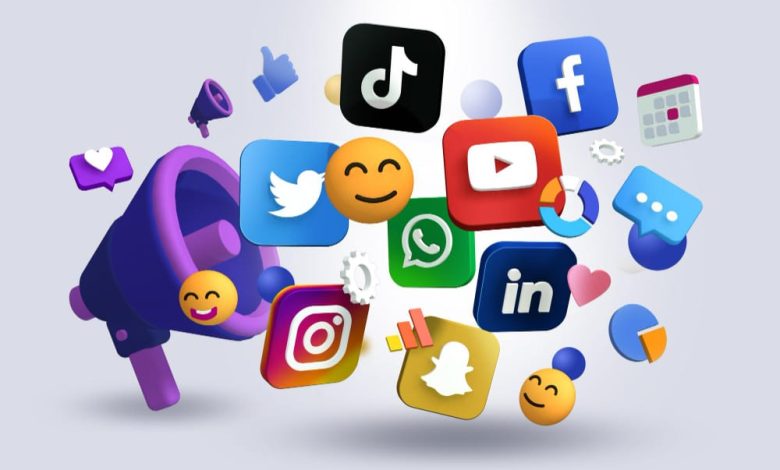International Legislation to Curb the Use of Social Media for Hate Speech

Sudan Events – Agencies
Many agree that one of the main factors that ignited and fueled the current war is the uncontrolled use of social media to spread hate speech and tribal tensions, without hesitation, even using language that Sudanese people had not used before, which led to physical confrontations, whether with hands, sticks, or even swords, knives, bows, and arrows, resulting in fighting and conflict.
The original motivation was the belief that “what you send out to others will come back to you – didn’t our noble religion warn us not to insult the parents of others, so that our parents are not insulted in return?” Thus, people refrained from using anything that could harm others, as it could bring harm back upon them.
However, when direct interaction faded and others seemed like invisible avatars, the element of confrontation disappeared. People began to spread insults and engage in verbal abuse, free from the risk of local laws or authority that could hold them accountable, even if much later. Now, serious efforts are emerging from Western Europe, the United Nations, and human rights organizations to play a role in regulating this issue.
In the past, people committed crimes, killings, and even genocides, believing they were safe from punishment, confident that no hand would reach them. Similarly, in today’s open digital space, it may seem as though controlling or reaching those who spread hate speech is a distant concern. However, if people reflect on it, they will realize that every word written and every phrase spoken is being saved and monitored closely, thanks to algorithms and the Internet of Things. This means that we are under surveillance as soon as we access any device, even if it is not connected to the Internet.
This is not a coincidence. The importance of knowing the location and time of any conversation or broadcast is not only technical or intelligence-related, but primarily commercial. After all, how do telecommunications companies know who is talking to Khartoum from Shalouha, Khawalida, Ambrambita, Yabus, Yarda, or Halfaya Dagheem, or from Zamzam and Laiit Jar Nabi? How do they track conversations from Kuala Lumpur, Livingstone, Bujumbura, Laos, or Windhoek? Anyone familiar with how cookies work in computers or tablets knows that it is now possible to know everything about you, everywhere and at any time, unless you’re in a place with no smart devices or channels, far beyond the wilderness, the polar ice caps, and the rising and setting suns.
This thought came to mind when I read that the UN High Commissioner for Human Rights insisted, just a few days ago, that posts on social media that incite hatred and division have “real-world consequences” and that there is a responsibility to regulate content. His comments followed Meta’s decision to end its fact-checking program in the United States.
Volker Turk wrote on X: “Allowing hate speech and harmful content online has real-world consequences. Regulating this content is not censorship.”
In a longer post on LinkedIn, Turk reiterated that labeling efforts to create safe online spaces as “censorship” overlooks the fact that an unregulated space silences certain voices—especially those often marginalized. At the same time, allowing hate speech online limits free speech and can cause real harm in the world.
Mark Zuckerberg, CEO of Meta, announced last Tuesday that the company would stop its fact-checking program in the U.S., arguing that fact-checkers risked appearing politically biased, and that self-regulation leads to significant censorship. He called for a return to free expression on Meta’s platforms, adding that user trust had eroded, according to UN News.
The International Fact-Checking Network (IFCN) reportedly rejected Zuckerberg’s “false” argument and warned that it could cause harm.
Turk emphasized that social media platforms have a tremendous capacity to shape society positively by connecting people. However, they can also fuel conflicts, incite hatred, and threaten the safety of communities.
He stated that at best, social media can be viewed as a space where people with differing opinions can exchange views, even if they often disagree.
The UN High Commissioner for Human Rights affirmed that he would continue to advocate for “accountability and governance in the digital space, in line with human rights. This protects public discourse, builds trust, and safeguards the dignity of all.”
When asked about the impact of Meta’s recent decisions on the UN’s social media policy, a UN spokesperson in Geneva confirmed that the organization continuously monitors and evaluates cyberspace.
Michel Zakio, Head of Television, Radio, and Online Broadcasting, said: “It remains crucial for us to be present with information based on facts.” He added that the UN remains committed to providing evidence-based information on social media platforms.
The World Health Organization also reaffirmed its commitment to providing high-quality, science-based health information and maintaining its presence on various online platforms.
In response to the growing crisis fueled by digital misinformation, the UN’s Global Communications Office is actively working to combat false narratives. This includes developing a Code of Conduct for Information Safety, known as the United Nations Global Principles for Information Safety.
Have we taken the first step on a million-mile journey?
Source: Al-Muhaqqiq website



